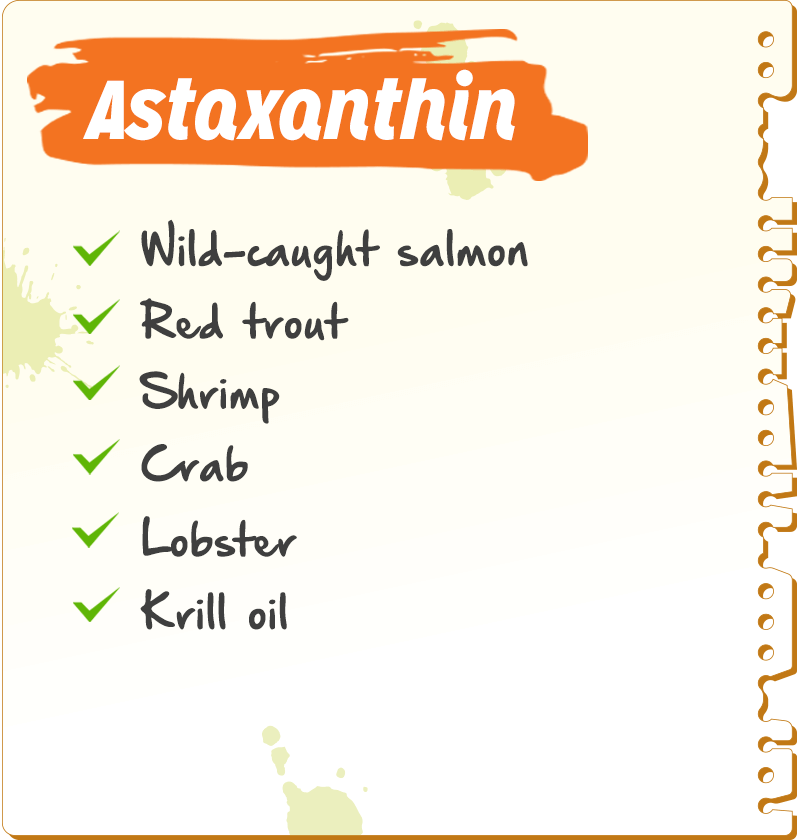Astaxanthin
Believed to be the most potent antioxidant produced in nature – 550 times stronger than vitamin E and 6,000 times stronger than vitamin C – mounting evidence shows astaxanthin has broad, system-wide health benefits including promoting skin, eye, brain and heart health. Produced by microalgae, this “super” antioxidant stays active far longer than its carotene cousins and can cross the blood-brain and blood-retinal barriers.
Fast Fact: Astaxanthin is what gives salmon and shrimp their pinkish hue.
Why You Need It: Astaxanthin’s high-potency antioxidant and anti-inflammatory one-two punch make it a nutrient “superhero” in addressing a variety of health concerns. Acting on at least five different inflammatory pathways, astaxanthin shows promise for individuals suffering from the pain and stiffness of rheumatoid arthritis, carpal tunnel syndrome and tennis elbow. Other astaxanthin research areas gaining momentum include cancer, cardiovascular health, and brain health, including protection against age-related dementia.
Studies have demonstrated astaxathin’s protective effects against age-related macular degeneration, the most common cause of blindness in the U.S. Research is also focusing on astaxanthin’s protective role in a variety of eye-related problems including cataracts, inflammatory eye diseases, retinal arterial and venous occlusion, cystoid macular edema, diabetic retinopathy and glaucoma. Astaxanthin has protective effects against UV-radiation skin damage without interfering with vitamin D conversion, and a growing body of research shows it supports overall skin health.

× ![]()
Best Food Sources: Top source is wild-caught salmon, especially wild Pacific sockeye. (Farm-raised salmon are dyed pink using synthetic astaxanthins, which have a different molecular structure than naturally-occurring astaxanthin and which are often created using petrochemicals.) Other good food and food-based sources of astaxanthin are red trout, shrimp, crab, lobster, and krill oil, which comes from small shrimp-like crustaceans called krill.
Supplement Suggestions: Krill oil, especially Antarctic krill oil. Wild-caught Alaskan salmon oil is another good option.
Need to Know: Astaxanthin is found in marine animals that eat the microalgae that produce it. It is not made by the human body.
Check out our food and supplement shopping tips.